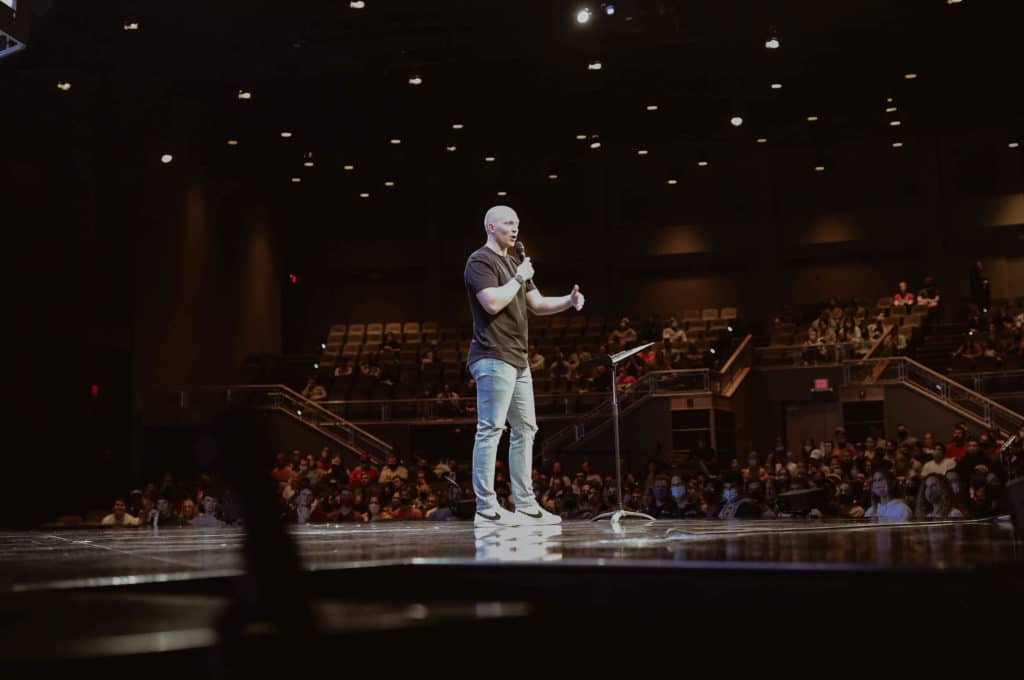Luke Peterson hadn’t planned on working with college students. But after God led him into college ministry, he found something he wouldn’t have expected — students are “a secret church-planting machine.”
They’re the perfect soil for the gospel, he said — but more than that, they’re the perfect candidates for passing it on and helping plant a church.
How it began
When Peterson first got involved in this ministry, he knew God was calling him to church planting — he just wasn’t sure what that was going to look like. So, he got connected with Send Network and also the Salt Network, a network that seeks to plant churches in every major university center in the U.S.
He moved to Iowa and started a two-year training process, watching and participating in what other Salt Network planters were doing at a nearby university to engage students.
“To be honest, I didn’t know much about the strategic nature of reaching out to them before,” he said. “But coming out here and seeing what was going on and the philosophy behind it, I was totally bought in.”
What Peterson found is that college students are a strategic investment in two important ways.
“College is a hinge point where they’re learning who they are and who they are becoming,” he said. “It’s a time when they have signed up to learn and be transformed. We’re trying to allow the gospel to be the greatest form of transformation in somebody’s college experience.”
It’s change with a ripple effect, Peterson said. Colleges and universities are full of next-generation influencers and leaders from all over the world.
“If we can share the gospel and set the trajectory for their future, that’s an investment that’s super long term,” he said.
But not only that — Peterson and his fellow church planters are trying to tap into the fact that college students are an immense resource. When they find out that Jesus is worth giving their lives to, there’s nothing holding them back from moving hours away to be a part of what God is doing, Peterson said.
“These students are getting saved in college, and no one has told them yet that what it means to be a Christian in the United States is to attend church on the weekends, maybe give some money, live your life but be a churchgoer,” he said. “Their mentality is that ‘somebody brought the gospel to me here on campus, so what am I going to do with it when it touches my hands?’”
Building a student core team
So as Peterson aimed toward planting a church in Columbus, Ohio, to reach students at Ohio State University, he knew where to find the perfect core team — the students who had recently met Jesus at their university in Iowa.
“All of these students who are getting saved are then graduating and looking for jobs,” he said. “So, we’re asking them, ‘Why don’t you allow involvement in a church plant to inform where you apply for jobs? Why not help these places flourish with gospel impact?’”
Currently, they have about 60 people committed to move with them.
“One of the things that’s been crazy for me is that a lot of these students don’t feel like it’s radical to move 10 hours, get a job and live in an apartment to be a part of a church plant,” Peterson said. “Their response to the gospel and the invitation to move is, ‘Of course, look at what Jesus has done for me and my brokenness. There are broken people all over the place; why don’t I leverage my life to see other people experience the grace that I have?’ It’s been really special for us to watch.”
Now he and his wife, Shaelyn, and their 1-year-old son, Brooks, are getting ready to launch The Capital Church in August.
“Our hope is that students would get saved at Ohio State, they would be discipled through our pipeline and then ask the question, ‘Where am I going to take the gospel next?’ and then they would be a part of church plants going out internationally and nationally,” Peterson said.
Published May 3, 2021
